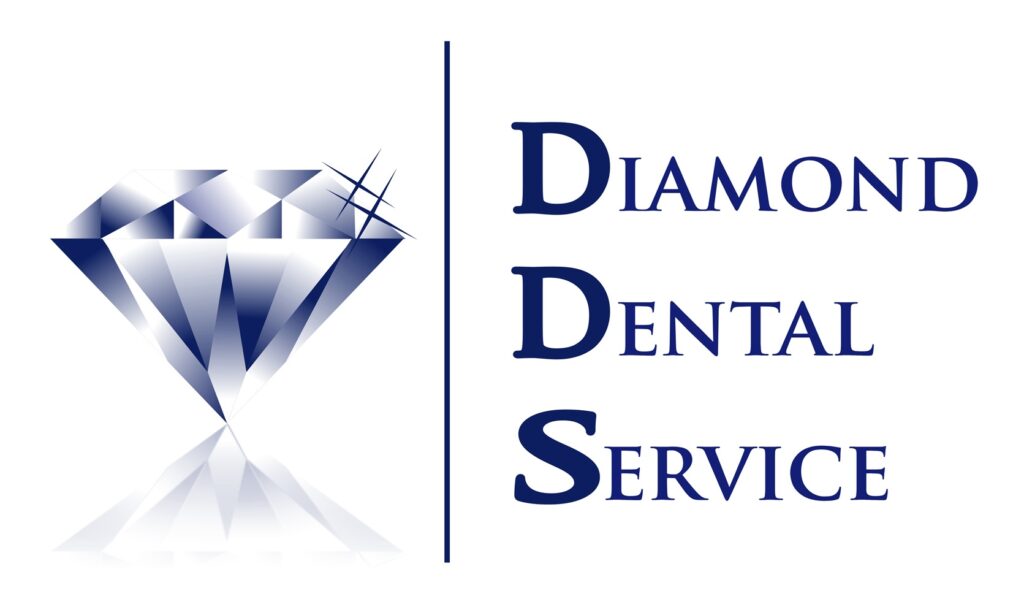Why Are My Teeth Stained?
To many people, a morning coffee or afternoon glass of wine is a ritual that cannot be disturbed or broken, but as many joys come with those drinks, there are still many enamel-straining prices. Learn more about the 3 different types of staining that can happen to your teeth below. If you are unhappy with the color of your smile, Diamond Dental Service in Lake Zurich, IL, can help!
Types of Stains:
Surface stains, material changes in your teeth, or a mix of the two can cause tooth discoloration. Tooth discoloration can be divided into three types, according to dentists:
- Extrinsic Teeth Stains: These stains are a type of discoloration that affects the outer layer of your teeth. Extrinsic stains are not as permanent as the other types. These stains will not respond to simply brushing your teeth. If there are cracks on the teeth, they can become deep-set and hard to remove.
- Intrinsic Teeth Stains: This type of stain will be found on the inner layer of your teeth or the dentin. Though dentin is beneath the tooth enamel, the darkened dentin can cause the whole tooth to appear discolored.
- Age-Related Teeth Stains: Age-related teeth stains are a combination of both extrinsic and intrinsic discoloration. The core tissue of your teeth, the dentin, will naturally yellow over time, causing your teeth to become discolored. Another factor that may cause your teeth to show discoloration is that the enamel of your teeth will become thinner, allowing the dentin to show through.
Causes of Enamel Stains
There can be many causes when it comes to teeth stains. Certain drinks and foods can cause stains on your teeth, as well as biological factors. Many times, there can be ways to prevent these stains from appearing on your teeth, and many that you can not control. This list can help you determine the cause of the stains on your teeth.
- Food & Drink: Coffee, dark sodas, red wine, and some fruits and vegetables can be so acidic that they cause staining.
- Tobacco: Cigarettes and chewing tobacco can contribute to discoloration
- Oral Care: Tooth discoloration can be caused by poor dental hygiene, such as insufficient brushing or flossing.
- Trauma or Disease: Discolored teeth can result from any trauma, illness, or disease that impairs enamel formation in children, whether in the womb or while teeth are developing (under the age of 8). Adult teeth can sometimes become stained as a result of trauma. Discolored teeth can be caused by several disorders and therapies, like chemotherapy and radiation.
- Medical Treatments: There are times when some medical treatments can contribute to your teeth staining and some medications.
Ways to Help Clear Stains
There are a few remedies that can help lessen the impact of these causes. With the help of some products, the coloration of your stains can become less apparent but will not fully remove those stains.
- Keeping a consistent healthy oral routine – brushing twice a day and daily flossing
- Twice-yearly visit to your dentist
- Limitation of teeth-staining beverages
- At-home remedies – brushing with baking soda products
- Professional teeth whitening
If you are interested in getting your teeth back to pearly white, contact Diamond Dental Service in Lake Zurich, IL, for a professional teeth whitening session!
Pros and Cons of Dental Implants
What Are the Pros and Cons of Dental Implants?
One of the hottest topics in dentistry today is the use of dental implants. Implants have certainly revolutionized the field of replacement teeth. If you are considering tooth implants for missing teeth, you need to know the facts. There are pros and cons of dental implants that are carefully weighed by your dentist before surgery can be scheduled.
Research continually shows that dental implants are the best long term solution to replace missing teeth. However, like any type of surgery, there are advantages and disadvantages.
Cons of Dental Implants
No procedure is right for everyone, including dental implants. While there are some risks associated with dental implants, they are relatively mild. The disadvantages include:
You have to meet a set of requirements
In order to have dental implant surgery, you first have to meet certain criteria. As the procedure involves anchoring the implant to your jaw bone, if you’ve experienced significant bone loss as a result of losing teeth, there may not be enough for the dental implant to be successful. You also have to be in good health so your jaw bone can fully recover.
The cost of the procedure
While dental implants are the best long term solution for tooth loss, they’re not always the most cost effective. However, dental implants are well worth the price for the comfort, confidence and natural feel they give you.
The procedure can be lengthy
Dental implants are not a quick fix and can take several months to complete. If you’re replacing an existing damaged tooth, this will first need to be removed. Your dentist will then need to prepare the tooth site before fitting the implant anchor. Once the anchor has been fitted, you’ll need to wait several months while it heals and the surrounding bone grows. The final stage of the procedure involves placing the artificial tooth.
Pros of Dental Implants
While there are some drawbacks to dental implants, the advantages far outweigh the disadvantages.
They look and feel like natural teeth
Dental implants have the appearance of real teeth. In fact, once your implant has been fitted, you’ll hardly be able to tell the difference between your replacement tooth and your real teeth. Implants also won’t feel any different from your regular teeth. Since the implants are anchored to your jaw, they’ll feel just as strong as your regular teeth too.
You can eat and chew with ease
Unlike dentures, implants won’t feel any different than your regular teeth when eating and chewing. Once the dental implant procedure is complete, you can eat what you want! Whether you fancy crunchy snacks, chewy foods, or hot or cold drinks, you can eat and drink without concern — just remember not to overdo the sugary treats.
Dental implants can last a lifetime
Implants are a long-lasting tooth replacement solution. You may need to replace the crowns every 10-15 years, but if you look after the implants, they can last a lifetime.
They’re easy to take care of
You should take care of your implants the same way you would take care of your regular teeth with daily brushing and flossing, regular dental checkups and a healthy diet.
They prevent bone loss
Dental implants are anchored into your jaw, similar to your real teeth. The screw thread of the implant acts as the root of a natural tooth, so with dental implants, your jaw bone remains strong and you won’t experience bone loss.
You can see that the advantages heavily outweigh the disadvantages. Dental implants have been proven to be a great option for people who suffer from tooth loss. We always want to make our patients look and feel great, and dental implants is a great way to do that. We’re always happy to answer any questions you may have, so give us a call!

